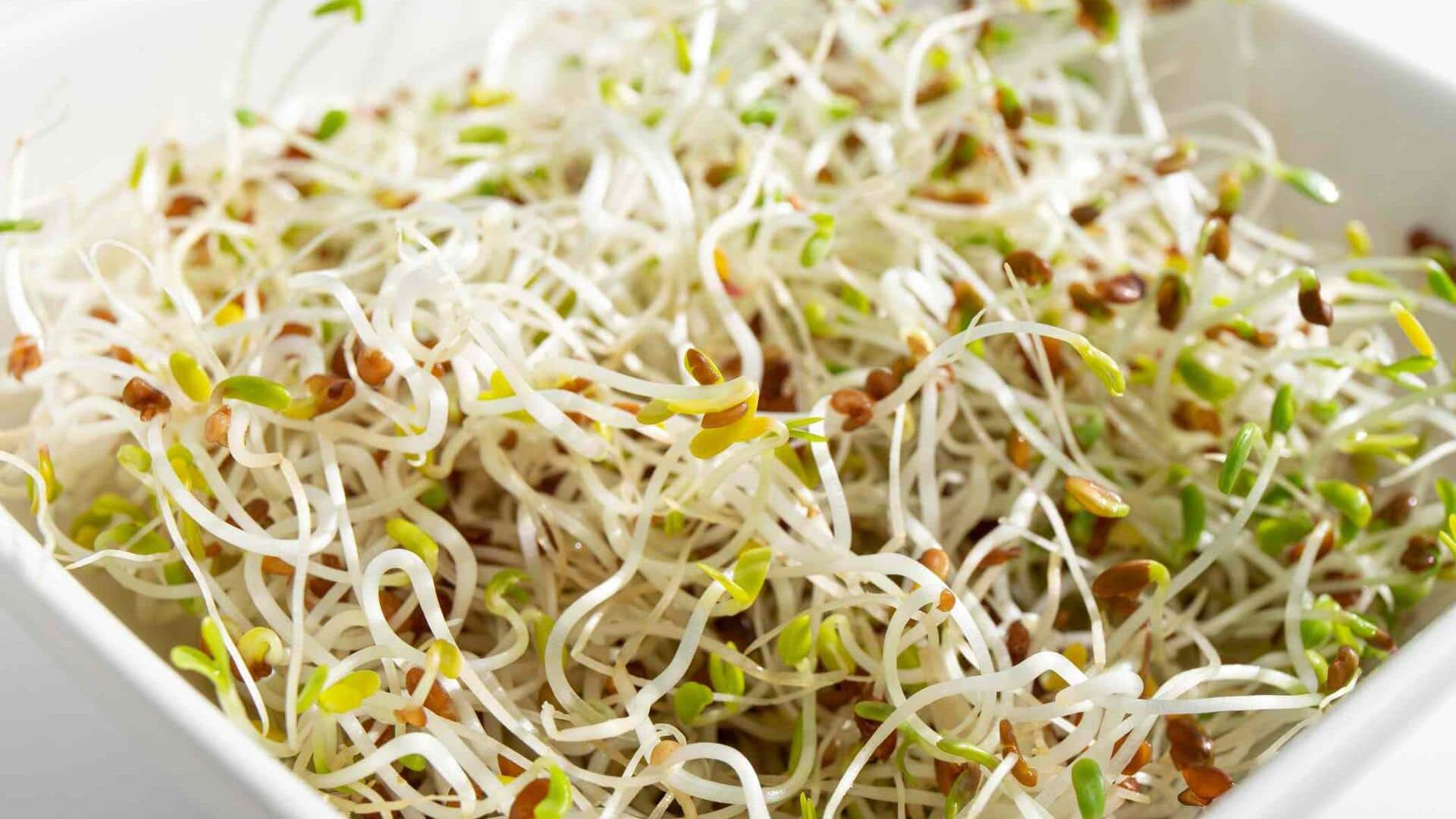
Uses and health benefits of alfalfa
What's the story
Alfalfa, deemed the "father of all foods," is a nutrient-dense cornerstone of numerous cultures.
This article delves into the benefits and applications of alfalfa, highlighting its nutritional prowess and well-deserved superfood title.
Packed with vitamins and a key player in sustainable agriculture, alfalfa embodies nature's dual gifts of health and harmony.
Nutrient profile
A nutritional powerhouse unveiled
Alfalfa sprouts are packed with vital vitamins and minerals, hence they are a great choice for a nutrient-dense diet.
They boast a high vitamin K content - a single cup serving offers roughly 30% of the recommended daily intake.
Plus, alfalfa is rich in vitamin C, calcium, potassium, and iron.
This nutrient powerhouse aids in strengthening immunity, maintaining bone health, and facilitating blood clotting.
Phyto Power
Beyond vitamins: The magic of phytonutrients
Alfalfa's heart-healthy benefits come from its unique phytonutrients, including saponins and flavonoids.
These compounds act like cholesterol bouncers, preventing it from getting absorbed in your intestines.
Research shows that eating alfalfa regularly can nudge your cholesterol down a bit—up to 17%.
So, alfalfa isn't just food; it's practically a strategy for managing heart health!
Green farming
Alfalfa in sustainable agriculture
Alfalfa is a key player in sustainable agriculture because it fixes nitrogen from the air into the soil.
This natural fertilization process eliminates the need for chemical fertilizers, fostering healthier soil and minimizing pollution.
Plus, the deep root system of alfalfa combats erosion and enhances water infiltration into the soil.
By incorporating alfalfa into their crop rotations, farmers can significantly improve soil fertility and sustainability.
Easy eats
Incorporating alfalfas into your diet
Incorporating alfalfas into your diet is both easy and rewarding.
They can be sprinkled over salads or sandwiches for added crunch or blended into smoothies for a nutrient boost without significantly changing the taste.
For more adventurous culinary enthusiasts, alfalfas can be used in stir-fries or as garnishes on soups and stews.
Their mild flavor ensures they enhance, rather than dominate, the taste of dishes.
Sprout cultivation
Growing your own alfalfas at home
Growing your own alfalfas is easy and satisfying. It takes minimal space and effort, and you get super healthy sprouts in three to five days!
All you need are good seeds, water, and a jar or sprouter. Soak the seeds overnight, then rinse them twice a day until they sprout.
It's a fun way to get fresh produce, and you know your sprouts are organic and pesticide-free.